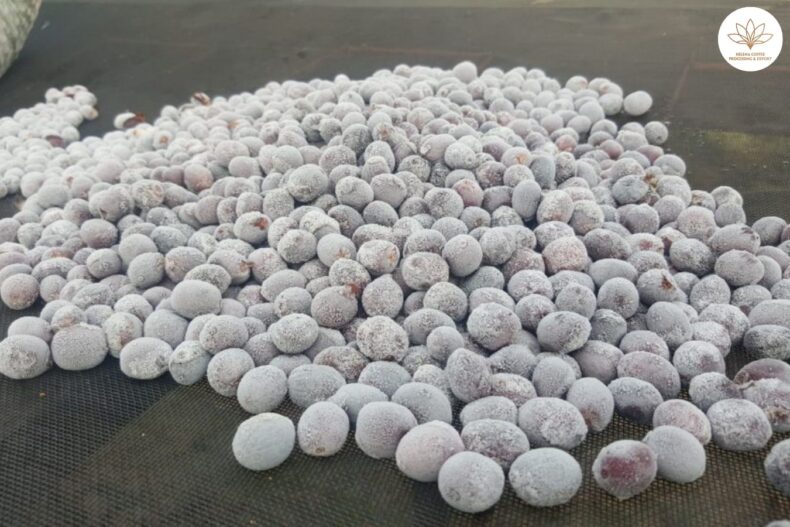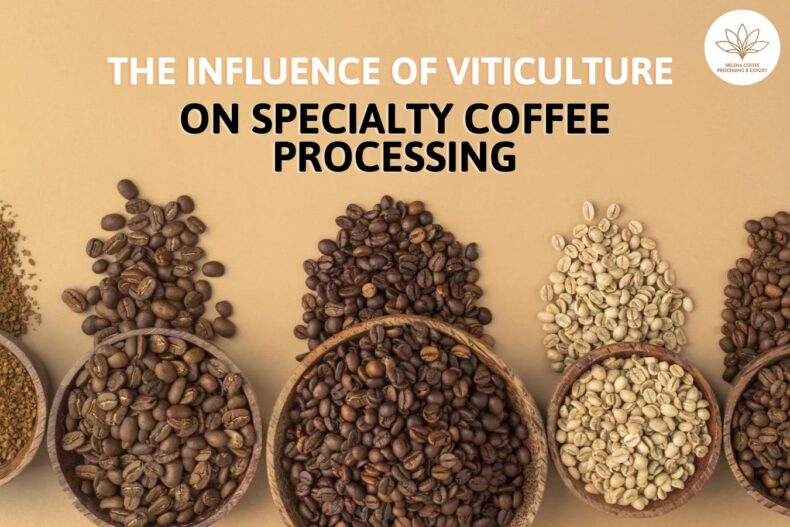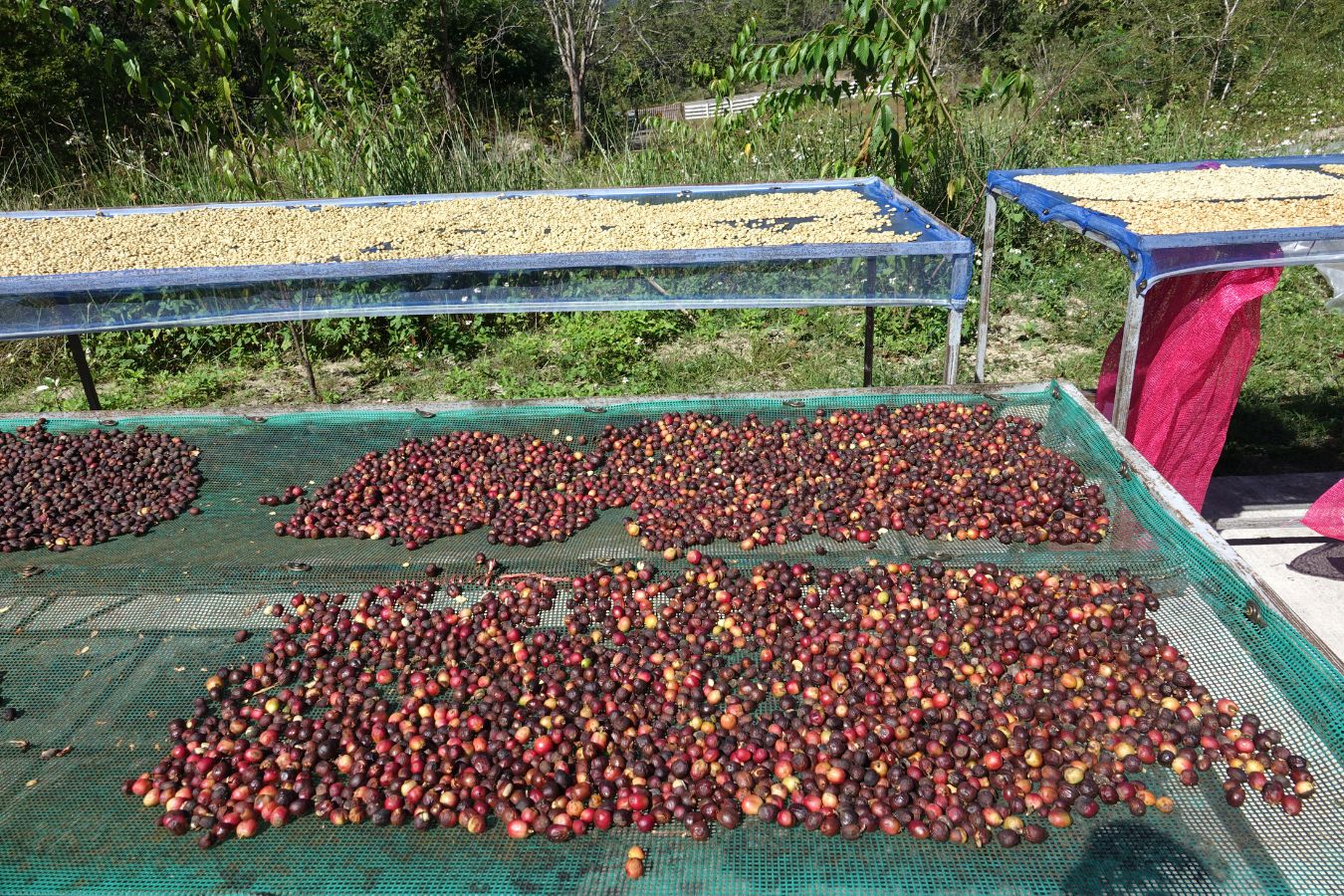
The more you study coffee, the more you’ll see that every move taken by the producer, roaster, or barista, no matter how minor, has an impact on the cup of coffee you’re drinking. You’ll realize that coffee processing is a critical stage in the from-farm-to-cup process that coffee roasters frequently discuss.
If you’re unsure how vital it is, consider this: Vietnam now has top-quality finished coffee beans thanks to learning and improving processing procedures. We are no longer only proud of exporting the second most Robusta… we have already etched our name on the international map of specialty coffee.
That is why you and I can enjoy a cup of Vietnamese coffee that rivals the taste of well-known Western coffee. So, let’s look at what coffee processing is and how different processing methods affect the flavor of your coffee.
What is coffee processing, and how does it work?
Washing coffee beans
The processing stage is between harvesting the coffee cherries and storing the finished product, the beans. Aside from the quality of the coffee fruit, processing has a significant impact on the flavor of the coffee beans.
Essentially, there are two steps to processing coffee beans: removing the layers of the coffee cherries and drying the beans. The order in which the above activities occur is the fundamental variation in processing coffee beans. A slew of innovative processing methods is emerging these days, many of which introduce unique flavors to coffee beans.
Natural processing method, also known as Natural / Dry processing method, Wet processing method (Washed), and processing method, are the three most prevalent coffee processing methods. Honey coffee beans have varying flavors depending on how they are processed.
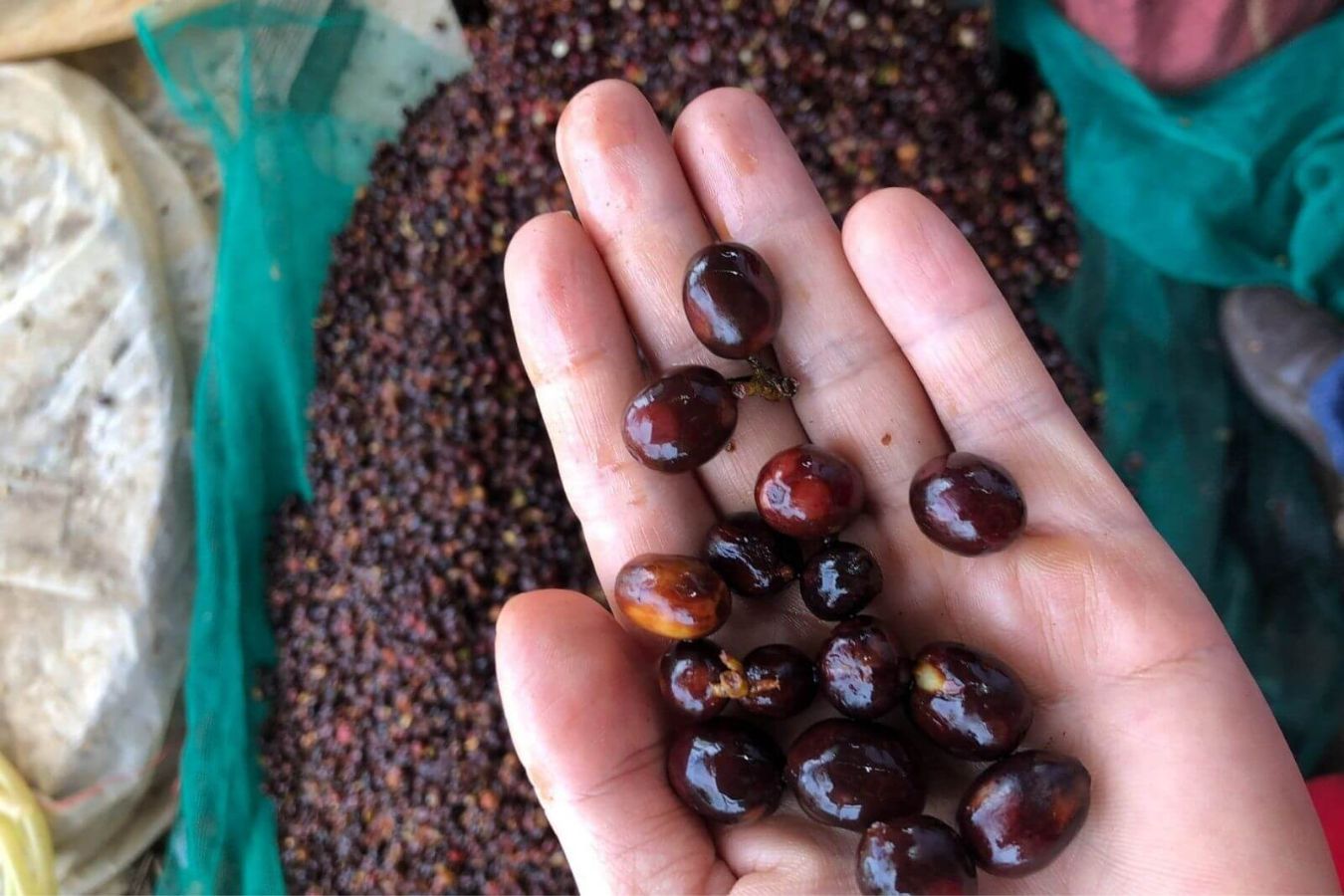
You must appreciate the natural flavor of coffee beans if you enjoy pure coffee beans. In the description of the coffee you drink, you’ll often find information regarding the processing procedure. Understanding the nature and strengths of each processing method will help you have a better sense of the flavor of the coffee.
Despite the high cost and time differences, each processing method has its own advantages, and no approach can be deemed superior to the others. We’ll take a quick look at the technical side of processing procedures to see how different processing methods affect the flavor of coffee beans.
First, we must understand that all processing processes are founded on the same standard: coffee cherries must be gathered and selected carefully from the tree. That is, only pick ripe fruits and avoid unripe or overripe ones.
The freshly picked coffee cherries will then be placed in a water tank to remove dirt and floating pods, which are broken, textured berries that are no longer intact. Whole.
Any high-quality coffee processing procedure begins with these two crucial and basic stages. Why is it so important? The solution can be found directly below.
Method of natural processing/ Dry processing method
The following is how this method is implemented:
The coffee cherries will be dried in the sun after being cleaned on the surface of the pods. During the drying process, the whole cherries will be maintained intact, catalyzing the beans’ fermentation.
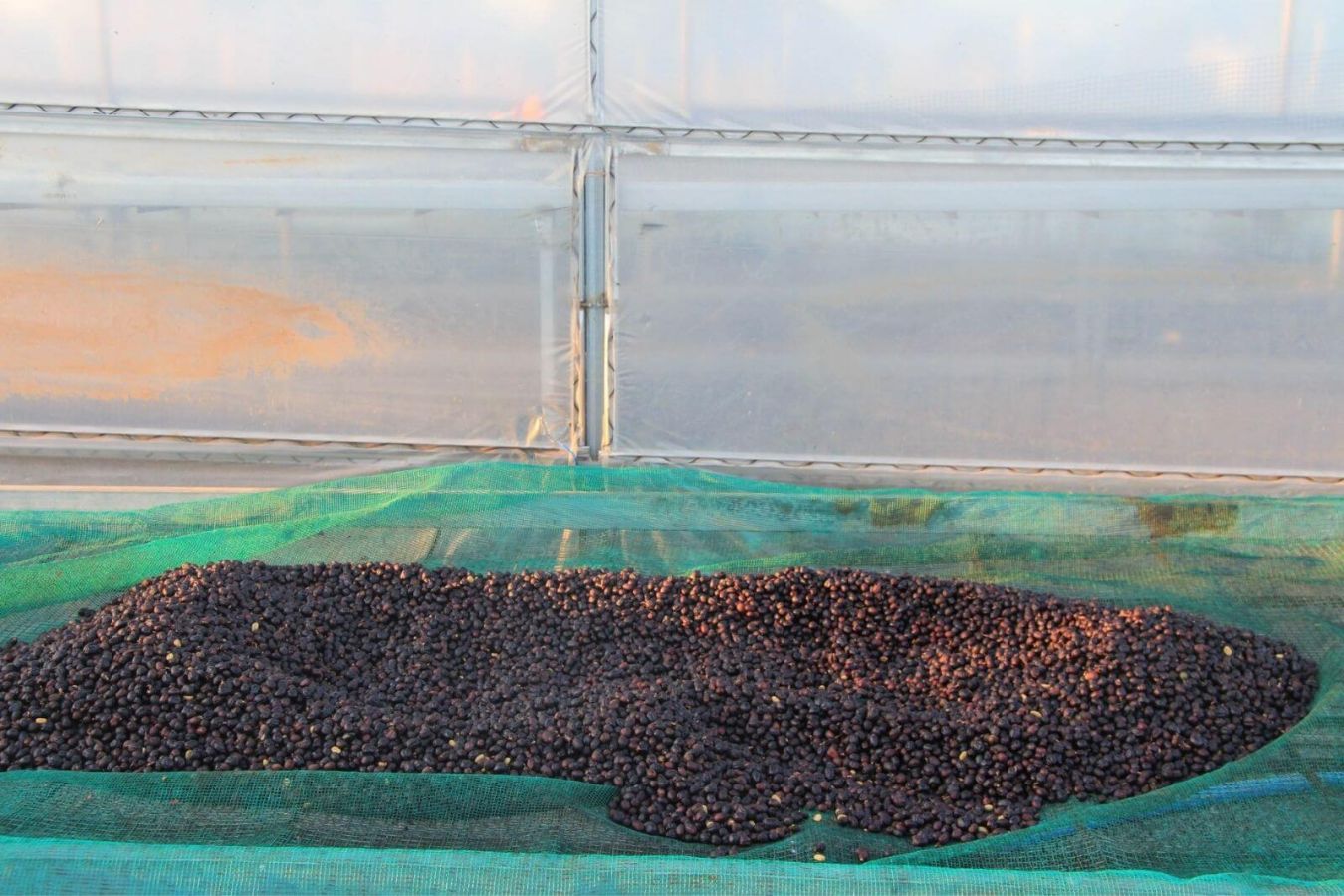
As we all know, coffee is a nut with a lot of sugar and, in particular, the most acid groups of any fruit. Apart from sugars, acids and phenols are components that contribute to each fruit’s distinctive flavor and taste. These chemicals are mostly found in the fruit’s flesh.
When drying, natural pre-processed coffee is maintained intact. When entire coffee beans are dried, the compounds inside the skin are maintained and continue to ferment during the drying process.
After the drying process is complete and the desired humidity level has been achieved, the farmer will remove any remaining surface residue from the coffee beans. This final product must be used to proceed to the next step.
In a nutshell, the natural processing method involves drying the entire coffee bean before removing the skins, pulp, and mucus to obtain the final bean.
Cooking method with water ( Wash)
In contrast to the natural processing approach, the wet processing method eliminates all of the skin, pulp, and mucous before drying. Just the coffee cherries’ seeds are dried; no additional fermentation takes place at this time.
Before drying, wet-processed coffee (wash) is rinsed, and the skin, flesh, and mucous are totally removed.
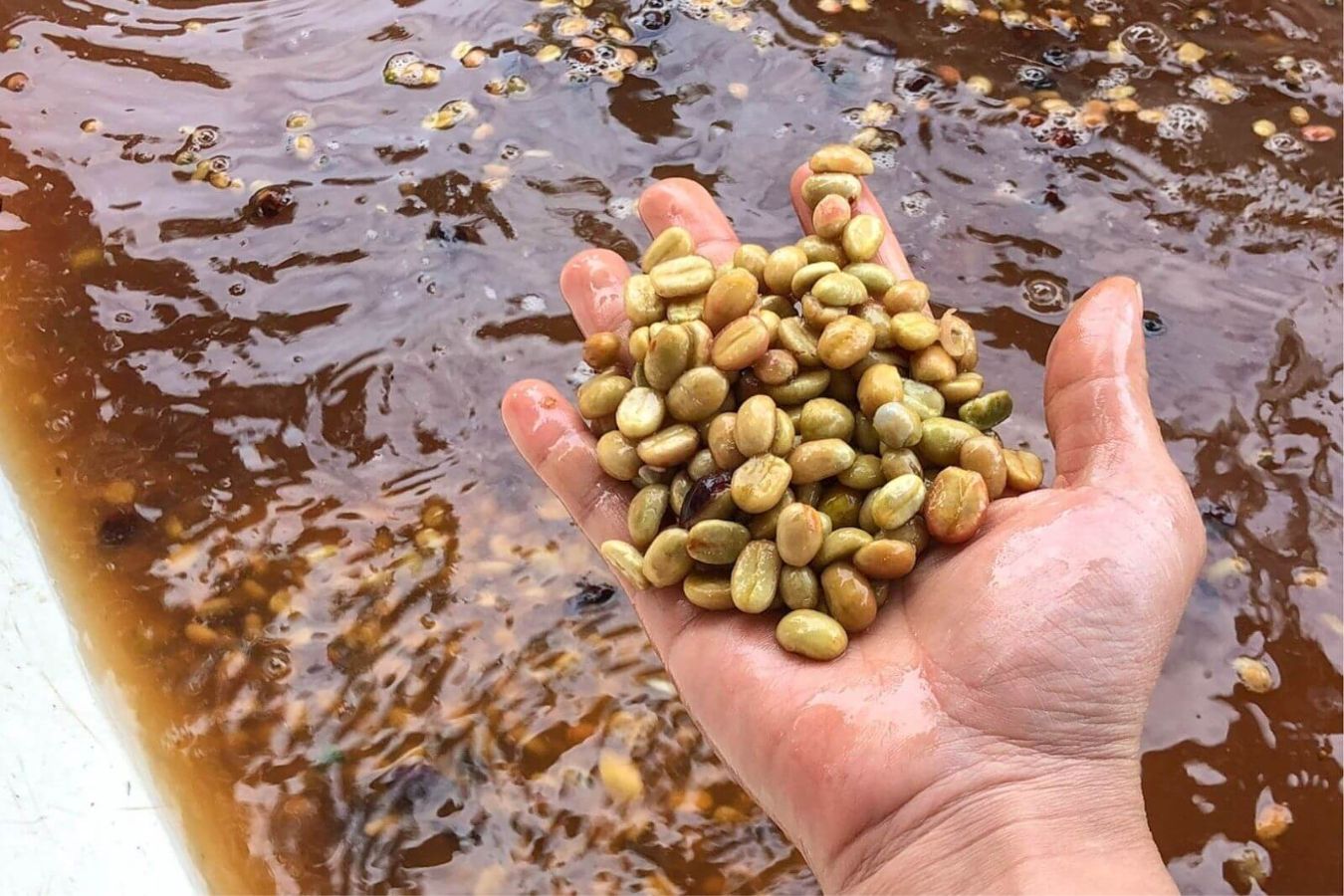
Between natural processing and wet processing, the processes are performed in reverse order:
- Drying first, then discarding, is a natural processing method.
- Wet processing entails removing the item first and then drying it.
- The wet processing method gets its name from the fact that water is used to remove and clean all layers of the coffee cherries, leaving only the seeds to dry.
Method of honey processing
Honey may conjure up images of honey being used in the manufacturing process. But that isn’t the case. This procedure removes the fruit’s skin and flesh, leaving a portion of the mucus layer to be dried alongside the seeds. Depending on the processor’s purpose, it is possible to keep all or portions of this mucus layer.
The mucilage layer will be kept and fermented alongside the coffee beans. The beans will collect moisture from the mucus layer and become sticky during this period. The sticky sensation is similar to honey, so the procedure is called Honey.

Control is the key to the Honey processing method. During the drying process, the parameters of coffee beans are rigorously monitored, including fermentation, sugar concentration in the mucilage layer, bean moisture level, and so on.
As a result, the honey processing method extracts a portion of it and then allows it to dry. Now that we’ve covered the technical aspects of the processing methods, we can move on to the key question:
How does each processing method affect the taste of coffee beans?
Because it is difficult to give a precise theoretical response to this topic, we shall weigh all three processing methods and assess them.
When it comes to the natural processing approach, it’s clear that everything is done by hand and naturally. Because everything from fermentation to drying is difficult to monitor in absolute terms, faults can still affect the quality and taste of the resulting coffee beans.
Because all of the compounds in the coffee cherries are maintained and fermented during the drying process, the beans will have the most complex and distinct flavors of any processing method. Floral and fruity flavors, for example, will appear intense and complex.
Wet Processing
Wet-processed coffee has a flavor best defined by the word CLEAN since only the seeds are kept for drying. Clean here does not mean tidiness, but rather that when you drink wet-processed coffee, you are tasting the beans’ natural flavor.
Only the coffee beans are dried; no further fermentation happens during the drying process; moisture and parameters are easy to manage because multiple layers of flesh no longer hide the beans as in natural processing; Wet-processed coffee beans have a basic and uncomplicated flavor.
Wet-processed coffee beans may lack strong and complex flavors compared to natural processing processes. However, wet-processed coffee is so light and pleasant to drink because of its simplicity and consistency. As a result, many people choose to drink wet-processed coffee daily.
Honey processing
The honey processing method necessitates a high level of control over coffee bean properties throughout the processing process. Controlled fermentation produces coffee beans with a stronger flavor than wet processing but a more balanced flavor than natural processing.
Compared to the other two procedures, this is the processing method that demands the most machine and personnel costs.
Final
Each processing method has its own set of advantages and disadvantages. As I already stated, there is no better processing method than the others. Honey-processed coffee beans are more expensive than natural coffee beans, but that does not mean they taste better.
Our customers know that we always tell them:
“The most important thing is to always taste the coffee before purchasing it.”
Because it’s a Honey-processed coffee, it’ll have a lot of sweetness and a distinct fruity aroma. Nothing, however, is promised. Taste it to make sure it’s delicious.”
